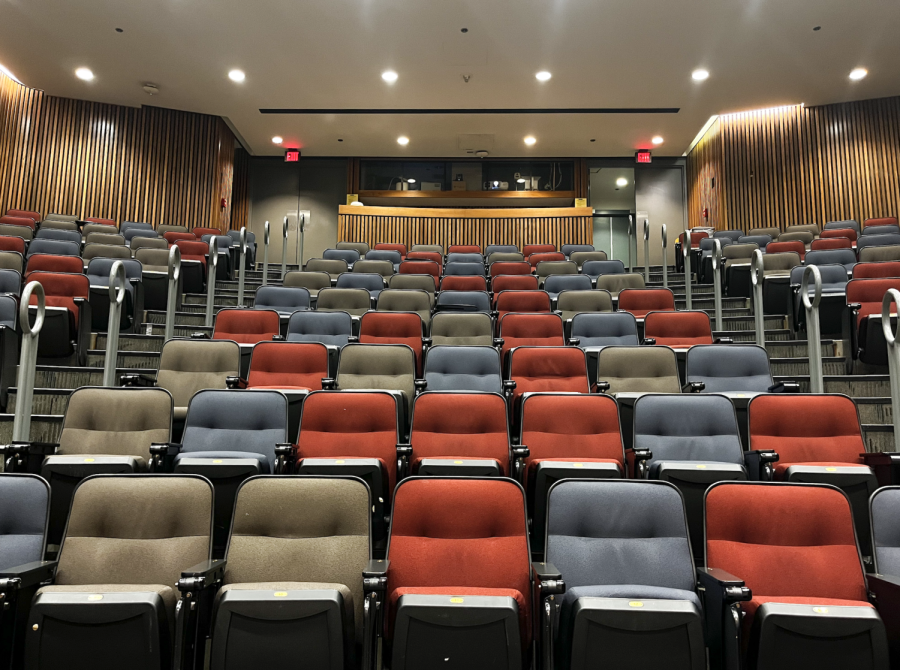“Quiet quitting” has entered academia, with academics pulling back their effort and commitment to the less lucrative but still strongly expected tasks. This could help make real strides in the academic power structure and manage burnout.
Earlier in March, an article was published in Nature discussing burnout and “quiet quitting” in academia. While many working in academia reject the term “quiet quitting,” it has become a common phrase among burnt out employees across industries and titles.
“Many researchers disdain the term, noting that they’re neither quitting nor being quiet about their desire to create healthier work-life boundaries, prioritize their mental health and reject toxic workplace cultures,” wrote the authors.
According to a 2022 survey in Nature, 75% of Nature readers reported cutting back on some tasks, with 67% noting burnout as the cause. Other reasons included not being willing to work unpaid overtime and lack of credit or recognition for the work. No wonder academic workers are cutting back on tasks they feel that they get no reward value for doing.
So, if researchers are not shirking their duties, and are instead setting boundaries and vocalizing their need for cutting back on thankless responsibilities to avoid burnout, what tasks are being cut from the list?
It turns out that the most commonly cut tasks were peer review and conference attendance.
Coincidentally, these tasks are also some pretty important ones to keep the academic research machine running smoothly.
Without peer review, research loses rigor and sometimes the recognition and knowledge sharing that comes from publication. Without conference attendance, scientific networking and open discussion could be stymied.
While the participation rate in these is not low enough to grind things to a halt just yet, issues are beginning to arise. More researchers are getting their manuscripts kicked back by academic journals due to inability to find reviewers with enough relevant knowledge of the subject matter. Additionally, poster sessions are starting to feel like ghost towns.
Graduate students seem to be more willing to step up, but they are often barred from participating in peer review and are less commonly selected to give talks at conferences.
Conference attendance was on the chopping block for both early-career and senior researchers. Research trainees, like graduate students and postdoctoral researchers (postdocs), often go to conferences hoping for networking opportunities for not only their current research but also the next step in their young careers. They want to meet senior researchers and learn about open positions. When senior researchers are absent, conferences lose some value for trainees, and they may stop attending as well.
I attended a conference last summer in which the graduate students and postdocs were highly engaged and each presented a poster, but almost none of us were selected for talks. The senior researchers were largely absent from networking and poster sessions and were clustered in closed-off conversation groups with each other during free time.
In terms of conferences and networking, senior researchers have a responsibility to make themselves available to the newer researchers on the scene, to give back to science and help develop the next generation of researchers.
Senior researcher participation in conferences needs to either be encouraged somehow, or there needs to be more ability for them to send delegates from their labs to network who can actually influence hiring decisions and foster research collaborations. Private companies use this model, so there is little reason why such a system could not be implemented in academic groups.
There could be an opportunity to allow graduate students and postdocs to participate in some other tasks at a higher level, which may be of greater value to them than it is to the senior participants who could be using their unique wisdom elsewhere.
Almost just as many senior researchers noted peer review as a task worth skipping as reported conference attendance. The credential based gate-keeping of peer review could be reevaluated to close this gap.
For instance, it may be reasonable to have one reviewer be a trainee at times. Ultimately, many graduate students and postdocs are interested in academic careers, or working in the science writing and publishing industry, and this would allow them to gain experience in a skill set that is not currently easy to access. It would give them a chance to experience the peer review process from both sides, as both submitters and reviewers.
It would give trainees an opportunity to contribute to maintaining the integrity of science from an early stage in their careers.
A criticism of this idea may be that graduate students and postdocs lack the breadth of knowledge that a professor might possess, and therefore would not be able to contribute meaningful insight and critique to the manuscript being reviewed.
However, if we take a step back and consider that scientific subfields often get “siloed” by specific jargon and communication styles, not to mention varying sets of what is considered “common knowledge,” perhaps it would be beneficial to have a reviewer that may push writers to better explain their scientific findings to a broader audience.
Graduate students may balk at this idea, as many feel they are grossly underpaid and overworked as it is, and many struggle with setting boundaries and preserving a work-life balance conducive to mental health.
To some graduate students, the learning opportunity and the ability to cite the experience on a resume may be worth it, however. Graduate students would also be more amenable to much smaller cash bonuses for serving as reviewers than a professor with classes to teach, a lab to run and committee memberships already squeezing their energy for a 6-figure salary.
As many researchers in any stage of their career can understand, it becomes a balance of using your limited energy and specific skills most effectively to avoid wasting your time or getting burnt out. The current shifts due to burnout may be showing us a way to shift the balance of responsibilities in a way that could benefit many.
Would you like Allison to follow up on this topic or explore something specific? Contact her at [email protected] with questions, comments or story ideas.






















